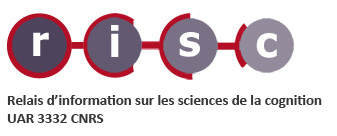Designing motivational, adaptive and mobile interactions for behavior change : application to low back pain
Conception d'interactions motivationnelles, adaptatives et mobiles pour le changement de comportement : application à la lombalgie
Résumé
Today's technologies are known as persuasive or motivational, referring to technologies, applications or services designed to induce changes in the attitudes and behaviors of those who use them. This is the subject of research in Human-Computer Interaction, in conjunction with theories from psychology linked, for example, to behavior change or motivation. Research on these technologies suggests that, in order to encourage long-term adherence, these “virtual coaches” need to be personalized and/or adapted according to users' individual characteristics (stage of behavior change, motivations, preferences, barriers). For example, according to Self-Determination Theory (SDT), an individual may present different forms of motivation, more or less effective. The aim is to identify the forms of motivation present in users, in order to offer services and interactions that reinforce or develop them. The use of such systems in the healthcare field has the potential to induce and reinforce health behaviors that are sometimes difficult for caregivers to establish. Offering personalized daily care represents a considerable human and financial cost for healthcare professionals. A mobile application has the advantage of being able to cope with these constraints. The aim of this thesis is to design this computer coach with and for patients suffering from chronic low back pain, to help them manage their condition, particularly with regard to their pain and the practice of regular physical activity. The major challenges of this thesis include the selection and coordination of different existing methodologies, as well as the evaluation of the application's quality and effectiveness. Key issues address a thorough understanding of patients in terms of psychological characteristics, the implementation of a user-centered and participatory approach to meet patients' needs, the tailoring of the intervention to foster the behavior change process, and the evaluation of this intervention on patients' engagement and behavior change process. The contributions are structured around three axes: (1) the proposal of a design and evaluation metamodel for adaptive digital interventions to support behavior change, (2) the identification of low back pain patient profiles based on psychological characteristics related to the behavior change process, and (3) the design of a mobile application for low back pain patients. Thus, this thesis proposes a useful approach to guide the design of adaptive human-machine interventions and interactions, based on theories in the psychology of behavior change and involving professionals and patients in the design process.
Aujourd'hui se développent les technologies dites persuasives ou motivationnelles qui désignent des technologies, applications ou services conçus pour induire des changements d'attitudes et de comportements chez ceux qui les utilisent. Cela fait l'objet de recherche en Interaction Humain-Machine en lien avec des théories issues de la psychologie liées par exemple au changement de comportement ou à la motivation. Des recherches sur ces technologies suggèrent qu'afin d'encourager une adhésion à long-terme, ces “coachs virtuels” doivent être personnalisés et/ou adaptés en fonction des caractéristiques individuelles des utilisateurs (stade de changement de comportement, motivations, préférences, barrières). Par exemple, selon la Théorie de l'Auto-Détermination (TAD), un individu peut présenter différentes formes de motivation plus ou moins efficaces. Il s'agit alors de pouvoir identifier les formes de motivation présentes chez les utilisateurs afin de proposer des services et des interactions permettant de les renforcer ou de les faire évoluer. L'utilisation de tels systèmes dans le domaine de la santé a le potentiel d'induire et de renforcer des comportements de santé parfois difficiles à instaurer par les soignants. Proposer une prise en charge quotidienne et personnalisée représente un coût humain et financier considérable pour les professionnels de santé. Une application mobile a l'avantage de pouvoir faire face à ces contraintes. L'objectif de cette thèse est de concevoir ce coach informatique avec et pour des patients atteints de lombalgie chronique pour les accompagner dans la gestion de leur pathologie notamment vis à vis de leurs douleurs et de la pratique d'une activité physique régulière. Les défis majeurs de cette thèse incluent la sélection et la coordination des différentes méthodologies existantes, ainsi que l'évaluation de la qualité et de l'efficacité de l'application. Les questions clés abordent une compréhension approfondie des patients en termes de caractéristiques psychologiques, la mise en œuvre d'une approche centrée-utilisateur et participative pour répondre aux besoins des patients, l'adaptation de l'intervention pour favoriser le processus de changement de comportement, et l'évaluation de cette intervention sur l'engagement et le processus de changement de comportement des patients. Les contributions s'articulent autour de trois axes : (1) la proposition d'un métamodèle de conception et d'évaluation pour des interventions numériques adaptatives de soutien au changement de comportement, (2) l'identification de profils de patients lombalgiques basés sur des caractéristiques psychologiques liées au processus de changement de comportement et (3) la conception d'une application mobile à destination des patients lombalgiques. Ainsi, cette thèse propose une approche utile pour guider la conception d'interventions et interactions humain-machine adaptatives, fondées sur des théories en psychologie du changement de comportement et en impliquant les professionnels et les patients dans le processus de conception.
| Origine | Version validée par le jury (STAR) |
|---|
